What is a freelancer? Let’s delve into the world of freelance work and learn what one does.
What used to be a hobby or side hustle is now rapidly becoming a lucrative full-time career choice. Freelance work is no longer just a source of extra income; more and more people are transitioning to become full-time freelancers.
In this article, we look into what freelancing is, its benefits and disadvantages, and how to start working as a freelancer.
What Is a Freelancer: Definition And Meaning
To all those wondering what a freelancer is, the explanation is simple.
A freelancer, also called an independent contractor, is a self-employed person.
Freelancers offer their services on a per-project or per-hour basis. Businesses or clients hire freelancers for a specified period to complete tasks or projects.
Unlike in a traditional employment model, freelancers can choose to take on multiple projects and multiple clients. Clients, in turn, don’t need to hire freelancers as part of their company.
Thus, clients are not required to pay their freelancers’ health insurance and other employment benefits.
Types Of Freelancers
In the past, freelancers needed to be physically present to provide their services. For these traditional freelancers, the amount of work and the number of clients are limited by their and their client’s location.
Traditionally, freelance work included service providers like photographers, architects, interior decorators, makeup artists, plumbers, etc.
Other traditional freelancers provide professional services like lawyers, on-call doctors, business consultants, financial analysts, etc.
Nowadays, what a freelancer is and does looks different.
A good percentage of freelancers can accomplish tasks and provide services through the Internet. These independent contractors meet their clients in virtual spaces, perform virtual duties, and sell virtual services or products.
Examples of these virtual freelancers include virtual assistants, online or social media marketers, online customer support representatives, and those who work in website development.
Other popular virtual freelancers are knowledge service providers for information technology (IT), technical support, data management, accounting, business accounting, customer services, healthcare support, and many other fields.
Pros Of Freelancing
Below are the benefits and advantages of freelance jobs over full-time employment:
You have a flexible work schedule
Compared to a regular job, freelance jobs have more flexibility over work hours and payment terms. You can choose when and where to work according to your preferences or availability. You can also get to pick clients and projects.
You can have a better work-life balance
Because of the flexibility that comes with being a self-employed worker, you can plan your workload better. This flexibility means you can set aside personal time for other areas of your life. For instance, when and how long your vacations depend on you and how you manage your time.
You can earn more
A freelance life gives you a chance to earn more because you are not limited to a specific salary or work hours. You can take on more clients or projects to make more money.
Also, unlike in traditional employment, you have control over the rates of your products or services. Being an independent contractor allows you to set your salary for clients.
You are your own boss
Being self-employed gives you the freedom to decide not only on your rates and working schedule. You also get to decide how to advance your freelancing career direction and personal development. Freelance writers, for example, can choose to specialize in specific topics or transition to other freelancing work like marketing or web development.
Cons Of Freelancing
The following are the common downsides to being a freelance worker:
You have less stability
Unlike having a full-time job, being a freelancer comes with varying income and working conditions. Because you take in different clients with tasks that can end in variable periods, your income will be unpredictable. If you don’t seek clients proactively, you will fail to sustain a steady income.
You take care of your finances
Freelancers need to see themselves as a business and, thus, should manage themselves as such. To succeed at freelancing, you need to take care of your finances.
After receiving all the profits from your salary, you need to account for your expenses and the cost of operations. You must also save a buffer income for low-income periods, emergency expenses, and future business needs.
You are responsible for your taxes
Related to taking care of finances, freelancers must also pay self-employment tax for their income. You are responsible for paying your taxes, and tax rates depend on your location. You need to inquire about your tax deductions and remit your taxes to your local revenue service providers.
You have no access to employer-funded benefits
What is a common problem many freelancers face? The fact that they are not considered company employees, so employers need not provide healthcare insurance or retirement plans.
As a freelancer, you also do not get paid holidays, sick leave, or vacation time. You need to avail yourself of insurance and retirement products using your income.
To have a sustainable freelancing business and better working conditions, you also need to take holidays and leave of absence. You can account for the lost income from taking time off from work as a necessary expense.
You need self-motivation
Traditional full-time employment provides motivation in the form of incentives, bonuses, and promotions. Without these, freelancers might lose the drive to push themselves to achieve their goals and accomplish their tasks.
You need self-motivation to prevent mediocre outputs and procrastination. You must maintain your optimism for your chosen projects and responsibilities. Effective self-motivation is the only way to reach your optimum earning potential.
How Does One Find Freelance Work?
If you are convinced that freelance work is the thing for you, and you understand what a freelancer is and what one does, below are the ways to become a freelancer:
- Ask professional contacts, friends, and family. Chances are you already know some freelancers on your personal network. Inform them of your intention to start freelancing and ask for their help. Most freelancers are happy to make referrals and share their freelance experience.
- Join a few reputable online freelance job networks. Several platforms let you search for freelance jobs and potential clients. Simply search for the type of freelance work you do and apply. You might do a few searches and contact several clients before you find the ideal ones for your services.
- Search on social media platforms. Social media platforms are also helpful in connecting with clients that need freelancers. You only need to be thorough in checking the background of these potential clients to avoid scams and illegal activities.
- Create a website. You can also create your own website to promote your products or services. This way, your clients can come to you, and you won’t need to keep sending applications for freelance projects. You may need some technical skills to set up and manage a website. But if these are a part of your skillset, your website would be the perfect way to promote your business.
Now That You Know What a Freelancer Does, Get Started With Remote Raven!
The gig economy is booming, and gig workers are more in demand than ever. But unfortunately, there is also intense competition in the freelance marketplace.
Whether you’re an experienced freelancer or just starting and still have questions about what a freelancer is and does, you need support in finding new clients and retaining them. Hence, you need a Remote Raven.
With Remote Raven, you never worry about finding freelance opportunities and applying for them. If you become part of our extensive freelancer network, you are always actively in line for a freelancing position. We continuously match freelancers’ qualifications with the requirements of our US-based clients.
Remote Raven trains freelancers to ensure high success in getting their ideal positions. We also provide support for client complaints, working hours and time-tracking, and other issues. We employ full-time and part-time freelancers. We also hire a wide range of professionals to perform the many responsibilities our clients are looking for.
And last but not least, Remote Raven provides protection and security. Sadly, some clients seek to cheat and take advantage of freelancers. With our years of experience in vetting and working with clients, we can ensure complete protection and security for our freelancers. We guarantee payment of your work hours if your clients fail to pay.
There are many ways to become a freelancer. But here at Remote Raven, your success is guaranteed because we do freelancing the right way. Apply and become part of our team today!





